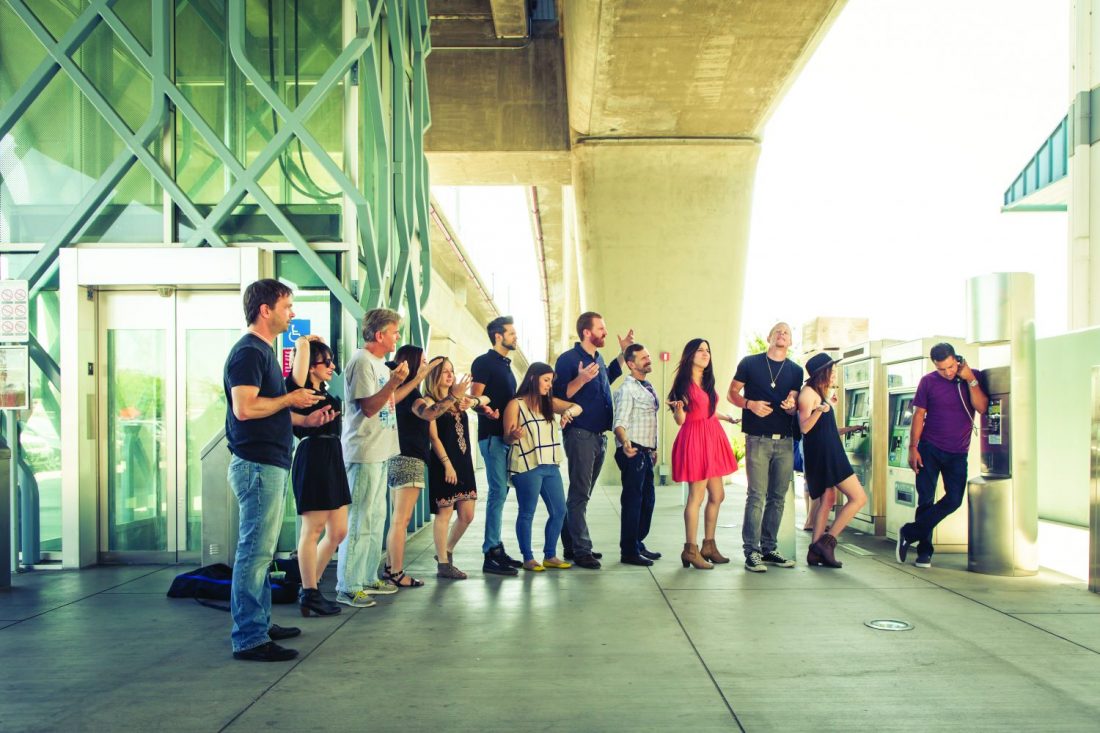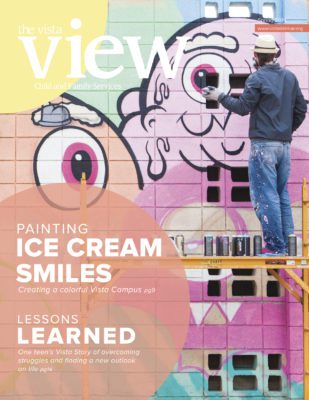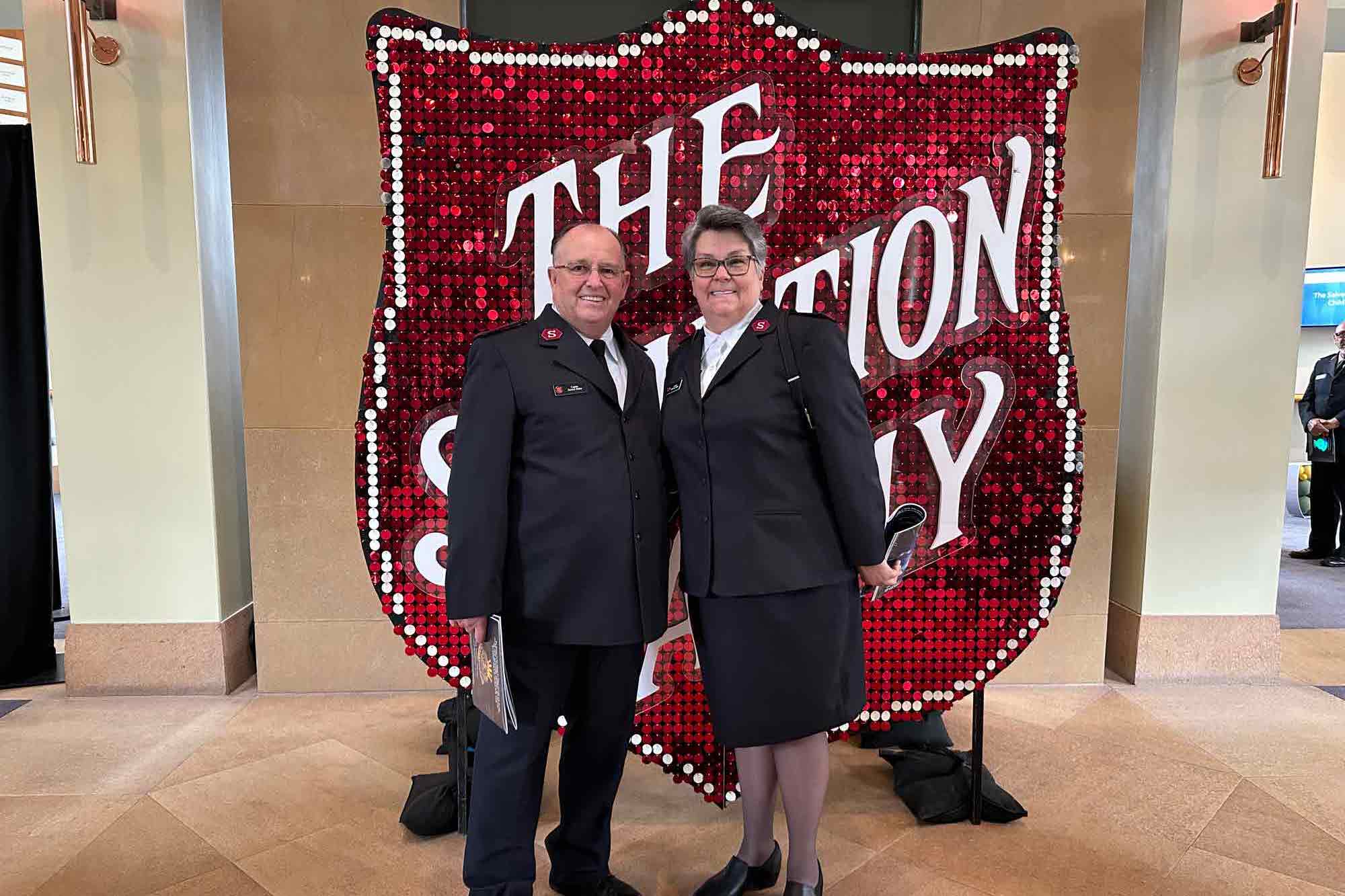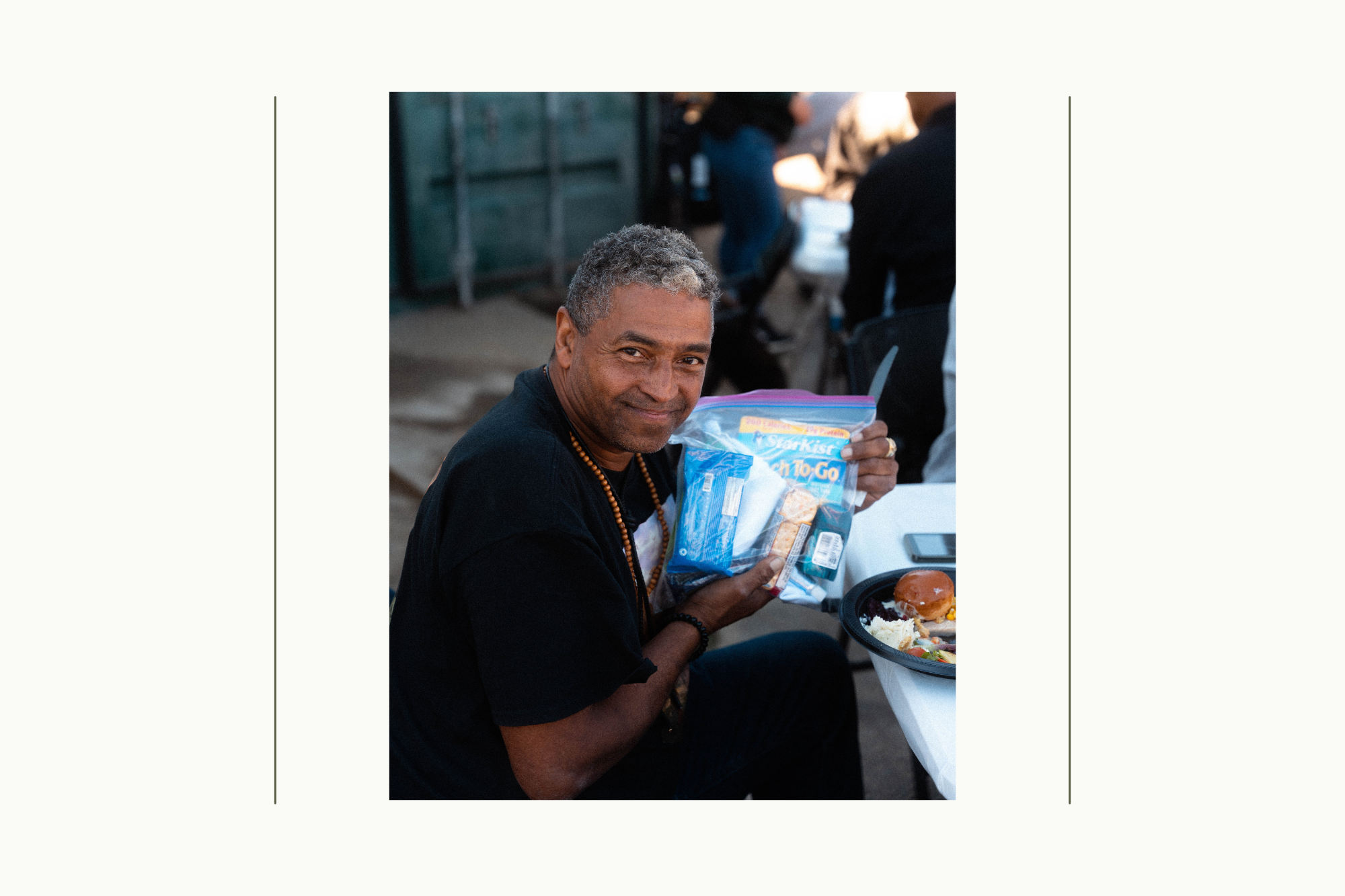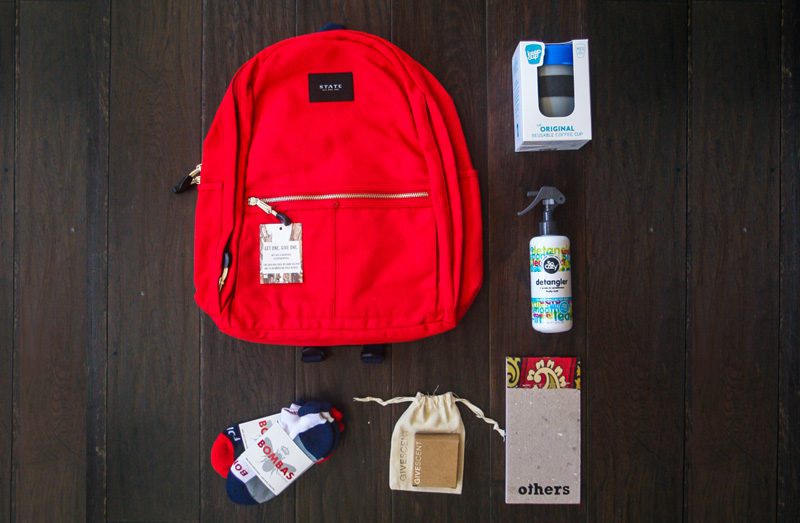Listen to this article
Listen to this article
Loading
Play
Pause
Options
0:00
-:--
1x
Playback Speed- 0.5
- 0.6
- 0.7
- 0.8
- 0.9
- 1
- 1.1
- 1.2
- 1.3
- 1.5
- 2
Audio Language
- English
- French
- German
- Italian
- Spanish
Open text
redesigning recovery. creative matters offers new chance at imaginative career. in los angeles, one residential treatment center is taking its client job placement program further by providing professional internships and jobs. creative matters is a full service creative agency staffed almost exclusively by those in recovery from addiction who are either undergoing or have completed treatment at beit t’shuvah, a faith-based residential addictions treatment center. founded in 1987 as a transitional home for released inmates, beit t’shuvah soon began to focus its efforts for those in recovery on preparing and finding employment. then in 2009 john sullivan, an addict in recovery, chief operating officer rabbi mark borovitz and advertising executive russell kern founded creative matters. intended to be an in-house graphic design team, creative matters grew into a full creative agency, staffed by the recovering addicts of beit t’shuvah. [huge_it_slider id=”10″] “we have a twofold mission,” said elaina katz, general manager of creative matters. “to provide game-changing creative work for non- and for-profit companies that makes a difference and to help transform the lives of recovering addicts by providing experiential marketing internships that foster passion and purpose.”. katz spent many years working in digital marketing before she decided to move into the nonprofit sector after witnessing a close friend’s struggle with addiction. she found beit t’shuvah on google and a couple of days after submitting a résumé she joined the team. “i enjoy working here because there is heart in everything we do,” katz said. “this place is a fusion of creativity and recovery and it’s intoxicating. it’s a workplace where we can be real and authentic; no one needs to hide their everyday joy or pain or struggles—on the contrary, they are encouraged to be transparent about it.”. do good–visit creativemattersagency.com to learn more about its “redemption by design.” – take the gallup strengthfinder 2.0 test to discover your top five natural strengths and ways to optimize them in your life at strengths.gallup.com. – read “the 7 habits of highly effective people: powerful lessons in personal change”(simon schuster, 2013) by stephen covey. first published in 1990, the book is a business bestseller on the balance of personal and professional effectiveness, and ways to perform better in both arenas. in mandatory twice-weekly meetings staff members and interns are encouraged to share about their lives and recovery. since the interns are often still in treatment, supervisors at creative matters work closely with treatment teams at beit t’shuvah in order to know and understand an individual’s progress in recovery. “this kind of transparency and vulnerability is welcomed and then worked through as a group,” katz said. “if someone is struggling, we all band together.”. creative matters profits return to the treatment program at beit t’shuvah. in this way, clients not only help those in recovery gain job skills and experience but also support addiction treatment for others. kendl ferencz is currently the art director at creative matters, but she started with the agency in a much different place. in 2009, she was the first graphic design intern while in treatment for addiction to heroin and opiates. when she was 14, kendl’s friend’s father had knee surgery. his doctor prescribed oxycodone for the pain and the two friends decided to take some too. “i figured out that i was addicted pretty quickly after that,” ferencz said. by 16, she was also addicted to heroin and believed the drugs were helping her. “i had always been an extremely anxious kid, and getting loaded made it easier for me to talk to people and to be more comfortable with myself,” ferencz said. it wasn’t long before she began to steal from her parents to fund her growing drug habit, which was actually pushing her into isolation. when she earned a scholarship to attend art school in philadelphia, she enrolled in a methadone clinic. “i was under the impression it would help me stop,” ferencz said. “it didn’t.”. for the next few years, ferencz was in and out of treatment until one night in a cheap motel room she had had enough. “internally i knew i couldn’t do it anymore. everyone i knew was disappointed in me,” ferencz said. “the real problem was that getting loaded wasn’t making anything better anymore. i either wanted to die, or get sober.”. she checked back into the last clinic that she had relapsed from, beit t’shuvah. “i think i was desperate enough this time to not want to go back to how i felt my last relapse, that i was willing to take direction from people instead of doing it my way,” she said. the biggest struggle was to speak honestly with her peers and mentors instead of pretending that everything was okay. “every other time i had gotten sober, when i started struggling with something or had thoughts of getting loaded, i wouldn’t talk to anyone about them,” ferencz said. “this time i wanted to do anything i could to not relapse, so i started opening my mouth and letting someone know when i was having crazy thoughts or having a hard time with something.”. she credits her recovery to the second chance at a fulfilling career through creative matters. “every other time i had gotten sober i would get a job at a coffee shop, which wasn’t exactly fulfilling,” ferencz said. “creative matters was an opportunity to do what i love. they helped me realize that i hadn’t screwed everything up, and i could do what i was passionate about.”. as the art director, she now mentors other people in recovery at creative matters. recent cover of the vista view produced by creative matters for vista del mar, a child and family services nonprofit in los angeles. “one of the best parts of working there is that i get to help people who were just as lost as i was discover what i had when i first started interning at creative matters,” ferencz said. “i get to see a light turn on in their eyes, and an excitement for where their lives can take them. it’s a pretty amazing experience.”. the agency is proof that professional job training has power. “i get to watch people transform their lives; they show up here vulnerable and timid and leave, or stay, blossomed, confident, skilled, passionate and redeemed,” katz said. “our company is doing two things. it’s providing the playground for passion and purpose so that people can successfully stay sober and healthy in the long term and it’s showing the world they don’t need to be scared of addicts.”. for people like ferencz, opportunities like this can be the difference between a recovered life and a lost one. “getting sober, being at beit t’shuvah and working at creative matters was and is the best thing that could have happened for me,” ferencz said. “i went from a desperate, hopeless and lost soul who couldn’t show up for anyone or anything to a person who works doing what they love, has an amazing husband and family and can look people in the eyes. my life is beautiful.”.
Open context player
Close context player
Plays:-Audio plays count
redesigning recovery. creative matters offers new chance at imaginative career. in los angeles, one residential treatment center is taking its client job placement program further by providing professional internships and jobs. creative matters is a full service creative agency staffed almost exclusively by those in recovery from addiction who are either undergoing or have completed treatment at beit t’shuvah, a faith-based residential addictions treatment center. founded in 1987 as a transitional home for released inmates, beit t’shuvah soon began to focus its efforts for those in recovery on preparing and finding employment. then in 2009 john sullivan, an addict in recovery, chief operating officer rabbi mark borovitz and advertising executive russell kern founded creative matters. intended to be an in-house graphic design team, creative matters grew into a full creative agency, staffed by the recovering addicts of beit t’shuvah. [huge_it_slider id=”10″] “we have a twofold mission,” said elaina katz, general manager of creative matters. “to provide game-changing creative work for non- and for-profit companies that makes a difference and to help transform the lives of recovering addicts by providing experiential marketing internships that foster passion and purpose.”. katz spent many years working in digital marketing before she decided to move into the nonprofit sector after witnessing a close friend’s struggle with addiction. she found beit t’shuvah on google and a couple of days after submitting a résumé she joined the team. “i enjoy working here because there is heart in everything we do,” katz said. “this place is a fusion of creativity and recovery and it’s intoxicating. it’s a workplace where we can be real and authentic; no one needs to hide their everyday joy or pain or struggles—on the contrary, they are encouraged to be transparent about it.”. do good–visit creativemattersagency.com to learn more about its “redemption by design.” – take the gallup strengthfinder 2.0 test to discover your top five natural strengths and ways to optimize them in your life at strengths.gallup.com. – read “the 7 habits of highly effective people: powerful lessons in personal change”(simon schuster, 2013) by stephen covey. first published in 1990, the book is a business bestseller on the balance of personal and professional effectiveness, and ways to perform better in both arenas. in mandatory twice-weekly meetings staff members and interns are encouraged to share about their lives and recovery. since the interns are often still in treatment, supervisors at creative matters work closely with treatment teams at beit t’shuvah in order to know and understand an individual’s progress in recovery. “this kind of transparency and vulnerability is welcomed and then worked through as a group,” katz said. “if someone is struggling, we all band together.”. creative matters profits return to the treatment program at beit t’shuvah. in this way, clients not only help those in recovery gain job skills and experience but also support addiction treatment for others. kendl ferencz is currently the art director at creative matters, but she started with the agency in a much different place. in 2009, she was the first graphic design intern while in treatment for addiction to heroin and opiates. when she was 14, kendl’s friend’s father had knee surgery. his doctor prescribed oxycodone for the pain and the two friends decided to take some too. “i figured out that i was addicted pretty quickly after that,” ferencz said. by 16, she was also addicted to heroin and believed the drugs were helping her. “i had always been an extremely anxious kid, and getting loaded made it easier for me to talk to people and to be more comfortable with myself,” ferencz said. it wasn’t long before she began to steal from her parents to fund her growing drug habit, which was actually pushing her into isolation. when she earned a scholarship to attend art school in philadelphia, she enrolled in a methadone clinic. “i was under the impression it would help me stop,” ferencz said. “it didn’t.”. for the next few years, ferencz was in and out of treatment until one night in a cheap motel room she had had enough. “internally i knew i couldn’t do it anymore. everyone i knew was disappointed in me,” ferencz said. “the real problem was that getting loaded wasn’t making anything better anymore. i either wanted to die, or get sober.”. she checked back into the last clinic that she had relapsed from, beit t’shuvah. “i think i was desperate enough this time to not want to go back to how i felt my last relapse, that i was willing to take direction from people instead of doing it my way,” she said. the biggest struggle was to speak honestly with her peers and mentors instead of pretending that everything was okay. “every other time i had gotten sober, when i started struggling with something or had thoughts of getting loaded, i wouldn’t talk to anyone about them,” ferencz said. “this time i wanted to do anything i could to not relapse, so i started opening my mouth and letting someone know when i was having crazy thoughts or having a hard time with something.”. she credits her recovery to the second chance at a fulfilling career through creative matters. “every other time i had gotten sober i would get a job at a coffee shop, which wasn’t exactly fulfilling,” ferencz said. “creative matters was an opportunity to do what i love. they helped me realize that i hadn’t screwed everything up, and i could do what i was passionate about.”. as the art director, she now mentors other people in recovery at creative matters. recent cover of the vista view produced by creative matters for vista del mar, a child and family services nonprofit in los angeles. “one of the best parts of working there is that i get to help people who were just as lost as i was discover what i had when i first started interning at creative matters,” ferencz said. “i get to see a light turn on in their eyes, and an excitement for where their lives can take them. it’s a pretty amazing experience.”. the agency is proof that professional job training has power. “i get to watch people transform their lives; they show up here vulnerable and timid and leave, or stay, blossomed, confident, skilled, passionate and redeemed,” katz said. “our company is doing two things. it’s providing the playground for passion and purpose so that people can successfully stay sober and healthy in the long term and it’s showing the world they don’t need to be scared of addicts.”. for people like ferencz, opportunities like this can be the difference between a recovered life and a lost one. “getting sober, being at beit t’shuvah and working at creative matters was and is the best thing that could have happened for me,” ferencz said. “i went from a desperate, hopeless and lost soul who couldn’t show up for anyone or anything to a person who works doing what they love, has an amazing husband and family and can look people in the eyes. my life is beautiful.”.
Listen to this article











